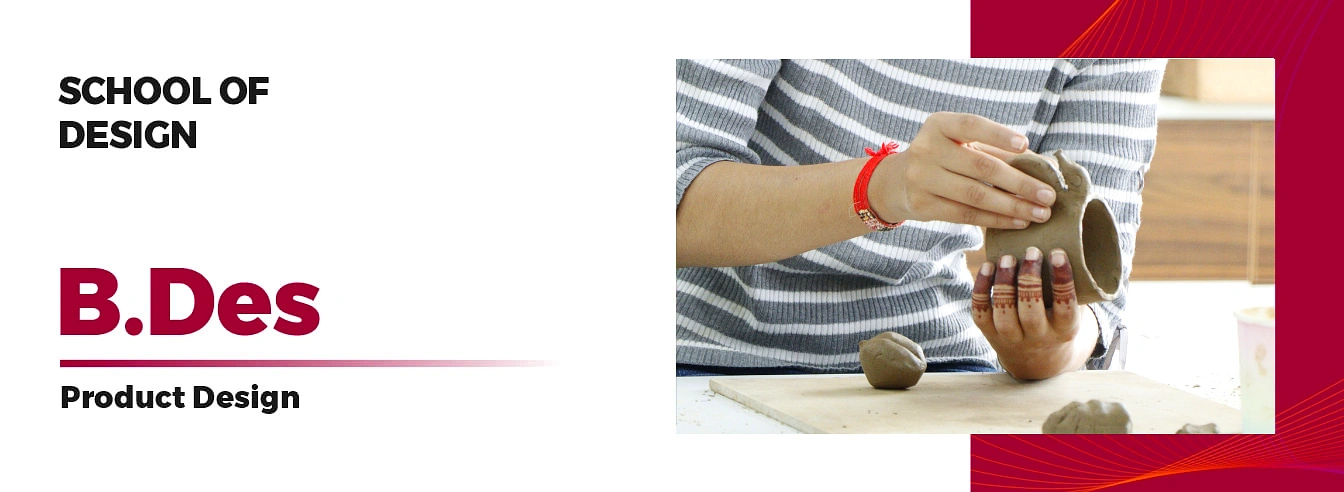The Bachelor of Design (B.Des) in Product Design at Pimpri Chinchwad University (PCU) is a dynamic program that prepares students for a successful career in product design. With a focus on creativity, problem-solving, and practical skills, the program equips students with the knowledge and expertise needed to thrive in the competitive design industry. The curriculum provides a strong foundation in design principles, materials, manufacturing processes, and user-centered design, preparing students for roles in industries such as consumer electronics, furniture, automotive, and more. Through theoretical coursework, practical projects, and industry internships, students gain hands-on experience and develop a deep understanding of the product design process from concept to creation.
PCU's School of Design is renowned for its industry-oriented curriculum, experienced faculty, and state-of-the-art facilities. As recognized to be top universities in Pune, PCU has a legacy of academic excellence and innovation, preparing students for successful careers. Graduates of the B.Des Product Design program can pursue careers as product designers, design consultants, and design managers, or start their own design studios. The university's strong industry connections and collaborations ensure that students are exposed to real-world challenges and opportunities, enhancing their learning experience. By choosing PCU for their B.Des Product Design studies, students can benefit from the university's legacy of excellence, industry partnerships, and commitment to nurturing talent and innovation.





